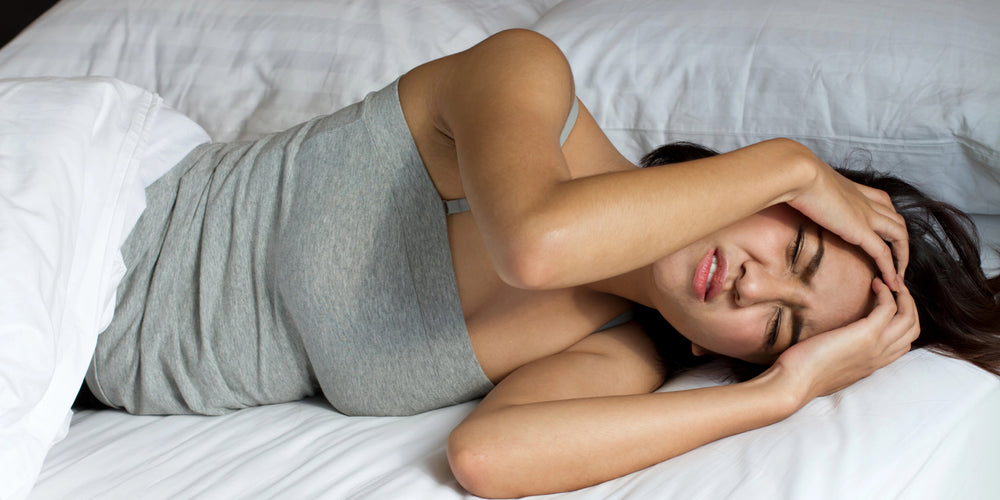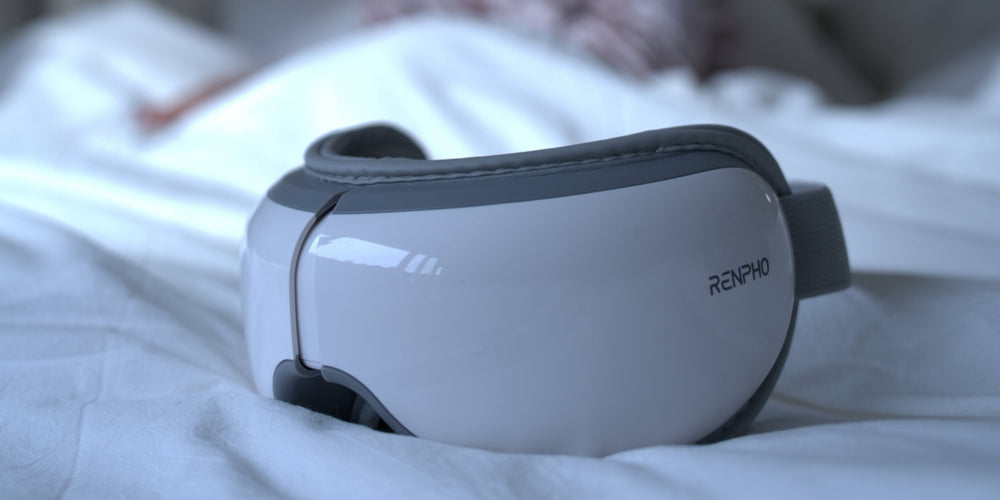Menopause is the biological process that marks the end of a woman's reproductive years, occurring when the menstrual cycle stops permanently, usually between the ages of 45 and 55. This process could also be accompanied by various symptoms, including hot flashes, night sweats, and mood swings.
Some might not know that menopause and migraines are actually connected. This type of headache is more common in menstruating women, but it may get worse in perimenopause (the period before menopause). In fact, research has shown that migraine occurrence may be influenced by the varying hormonal status of women through menarche, menstruation, pregnancy, and menopause. This is usually triggered by the sudden estrogen decline, as women continue to have fluctuating hormone levels even after ovulation has ceased.
With hormonal changes during menopause often triggering or impacting the frequency and severity of migraines, it is crucial for women to understand the link between hormonal changes and migraines.
Understanding Migraines During Menopause

Hormonal migraines or menopausal migraines differ from common migraines, specifically with the decline in estrogen levels. This estrogen withdrawal may trigger migraine without an aura, while high levels of estrogen, which are common leading up to ovulation, may also trigger migraine with aura.
A 2016 study found that the risk of high frequency headache is increased in women during the perimenopause compared to premenopause, with 12.2% of women having a high headache rate.
Perimenopause refers to the period leading to menopause, and hormonal fluctuations may trigger more migraine symptoms and attacks during this time. Estrogen is definitely the main culprit, causing other symptoms such as hot flashes and changes in brain chemicals (serotonin). According to Dr. Deena Kuruvilla, there is about a 50% to 60% chance that migraine will improve if a woman has gone through natural or spontaneous menopause. Women who have surgical menopause with the removal of the ovaries may have worsening migraine.
The perimenopausal transition is different for everyone, as some women who have migraine attacks before this time may advance through the transition years with minimal changes in migraine symptoms. After menopause, however, a majority of women with migraine will experience a significant reduction or even disappearance of migraine attacks, but it may take a few years as the hormonal fluctuations settle.
Navigating Hormonal Fluctuations

As menopause transitions could not avoided, managing menopause migraines should involve lifestyle adjustments. Once you've identified and started avoiding triggers, such as certain foods, stress, and lack of sleep, you could address your symptoms to reduce the frequency and severity of migraines.
Regarding certain prescription migraine medications, consult with your doctor to get the best one to help prevent attacks, including anti-epileptics, beta-blockers, tricyclic antidepressants, and monoclonal calcitonin gene-related peptide (CGRP) antibodies. Menopausal migraines could be also be relieved with nonsteroidal anti-inflammatory drugs (NSAIDs), such as ibuprofen, as well as triptans, especially when an attack is already in motion.
Treatment Options for Menopause-Related Migraines
Fortunately, menopause-related migraines have various treatment options available to help manage and relieve the symptoms of these migraines.
Aside from the use of preventative medications, Dr. Ashlesha Dhairwayan stated that hormone replacement therapy (HRT) is highly effective in managing menopausal symptoms and proves to be equally effective in reducing the severity and frequency of migraines. This form of therapy is said to stabilize hormone fluctuations that can trigger migraines, and could steady the erratic estrogen levels associated with migraines during the perimenopausal phase. What's great is that women could have HRT delivered through the skin, in the form of patches, gels, or spray, containing natural estrogens.
In addition to conventional medications, alternative therapies can also play a role in managing migraines. Maintaining a healthy diet could help balance out the body's hormones, especially if the meal contains foods rich in phytoestrogens, as these restore normal hormone balance. Estrogen-boosting foods include soy, apples, cherries, potatoes, rice, and yams.
@kellyriderweir Loving this. #renpho #selfcare #dryeye #migraines #heating #heat #vibration #massager #airpressure #music #eyecare #tiktok #fyp #relaxationviibes #relaxingvideos #relaxationgoals #tryit #loveit ♬ Healing Water - The Meditation - Red Blue Studio
For many women navigating the transition of menopause, migraines can also be treated with health devices. The RENPHO Eyeris 2 Eye Massager offers two levels of compression and heat settings, silent mode, voice broadcast, and Bluetooth connectivity, allowing users to enjoy a personalized relaxation experience with their choice of music or calming sounds.
The eye massager's user-friendly design not only aids in relieving migraines, but also addresses related issues such as eye fatigue, dry eyes, and insomnia, which are common during menopause.
Renpho Health Tips
-

7 Proven Strategies to Effectively Manage Migraine Attacks
June 5, 2024
Read more >
-

Optimizing Productivity: How Long Should a Power Nap Be for Maximum Effectiveness?
April 16, 2024
Read more >
-

5 Tips and Tricks to Start Lucid Dreaming Tonight
April 23, 2024
Read more >
-

Unveiling the Relief: Eye Massagers as a Headache Healer
March 21, 2024
Read more >
-

5 Signs You Need to Take a Break to Avoid Burnout
April 26, 2023
Read more >

